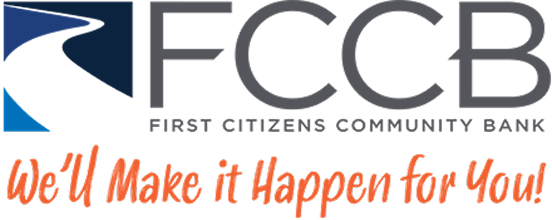Identity Theft & Internet Scams
12/11/2020
DID YOU KNOW?
Credit card fraud tops the list of identity theft reports in 2018. The Federal Trade Commission (FTC) received more than 167,000 reports from people who said their information was misused on an existing account or to open a new credit card account.
COMMON INTERNET SCAMS
As technology continues to evolve, cybercriminals will use more sophisticated techniques to exploit technology to steal your identity, personal information, and money.
- Identity theft is the illegal acquisition and use of someone else’s personal information to obtain money or credit. Signs of identity theft include bills for products or services you did not purchase, suspicious charges on your credit cards, or new accounts opened in your name that you did not authorize.
- Imposter scams occur when you receive an email or call from a person claiming to be a government official, family member, or friend requesting personal or financial information. For example, an imposter may contact you from the Social Security Administration informing you that your Social Security number (SSN) has been suspended, in hopes you will reveal your SSN or pay to have it reactivated.
- Debt Collection scams occur when criminals attempt to collect on a fraudulent debt. Signs the “debt collector” may be a scammer are requests to be paid by wire transfers or credit cards.
SIMPLE TIPS TO PROTECT IT
- Double your login protection. Enable multi-factor authentication (MFA) to ensure that the only person who has access to your account is you. If MFA is an option, enable it by using a trusted mobile device, such as your smartphone, an authenticator app, or a secure token—a small physical device that can hook onto your key ring.
- Consider using the longest password or passphrase permissible. Get creative and customize your standard password for different sites, which can prevent cyber criminals from gaining access to these accounts and protect you in the event of a breach.
- Keep your software updated to the latest version available. Maintain your security settings to keeping your information safe by turning on automatic updates so you don’t have to think about it, and set your security software to run regular scans.
PROTECT YOURSELF FROM ONLINE FRAUD
The bottom line is that whenever you’re online, you’re vulnerable. If devices on your network are compromised for any reason, or if hackers break through an encrypted firewall, someone could be eavesdropping on you—even in your own home on encrypted Wi-Fi.
- Practice safe web surfing wherever you are by checking for the “green lock” or padlock icon in your browser bar—this signifies a secure connection.
- When you find yourself out in the great “wild Wi-Fi West,” avoid free Internet access with no encryption.
- If you do use an unsecured public access point, practice good Internet hygiene by avoiding sensitive activities.
- Don’t reveal personally identifiable information such as your bank account number, SSN, or date of birth to unknown sources.
- Type website URLs directly into the address bar instead of clicking on links or cutting and pasting from the email.
RESOURCES AVAILABLE TO YOU
If you discover that you have become a victim of cybercrime, immediately notify authorities to file a complaint. Keep and record all evidence of the incident and its suspected source. The list below outlines the government organizations that you can file a complaint with if you are a victim of cybercrime.
- FTC.gov: The FTC’s free, one-stop resource, www.IdentityTheft.gov can help you report and recover from identity theft. Report fraud to the FTC at ftc.gov/OnGuardOnline or www.ftc.gov/complaint
- US-CERT.gov: Report computer or network vulnerabilities to US-CERT via the hotline: 1-888-282-0870 or www.us-cert.gov. Forward phishing emails or websites to US-CERT at phishing- [email protected].
- IC3.gov: If you are a victim of online crime, file a complaint with the Internet Crime Complaint Center (IC3) at http://www.IC3.gov.
- SSA.gov: If you believe someone is using your SSN, contact the Social Security Administration’s fraud hotline at 1-800-269-0271.


